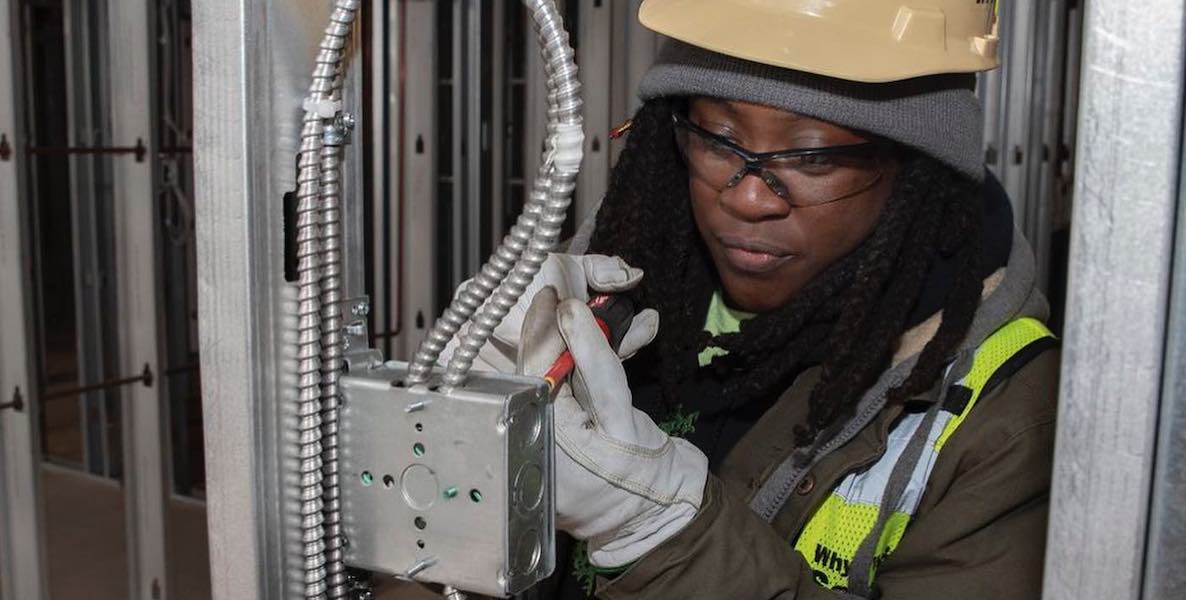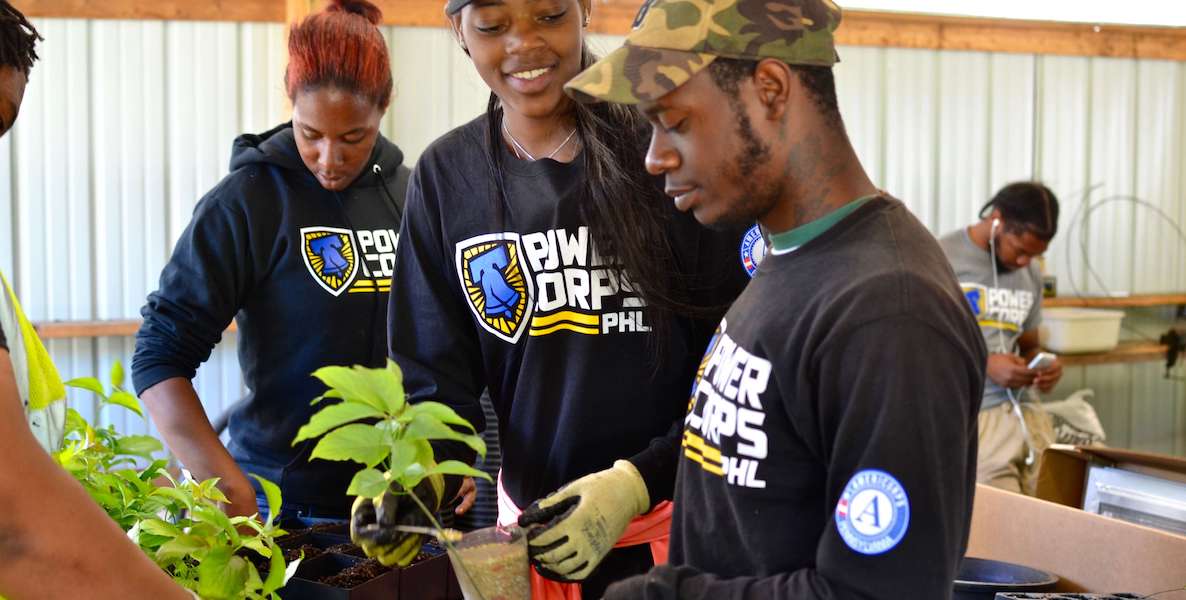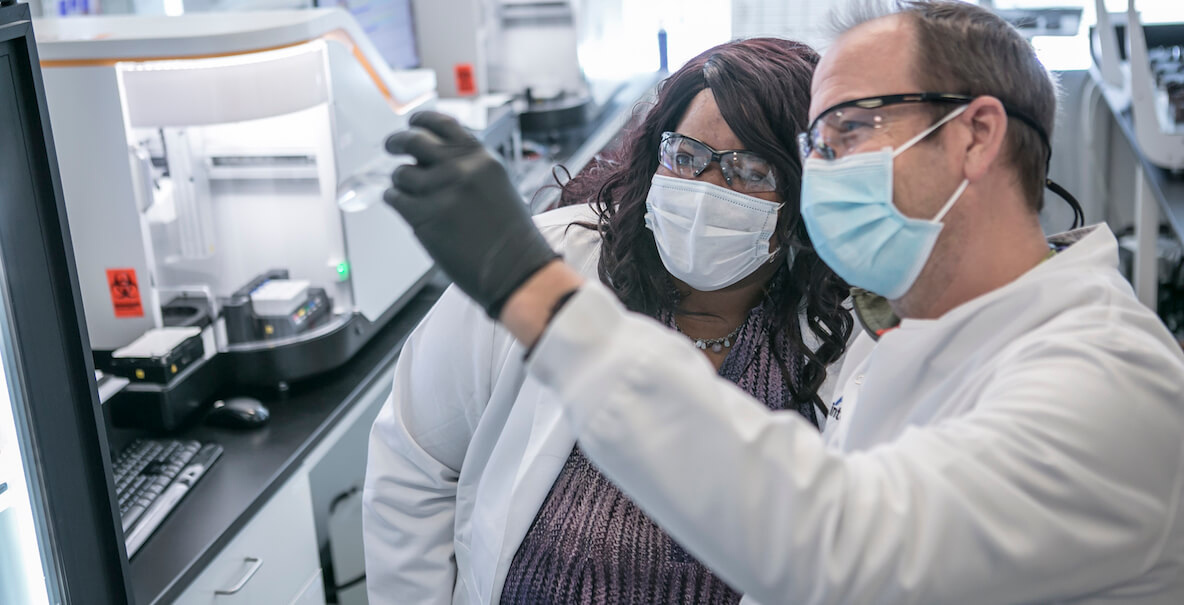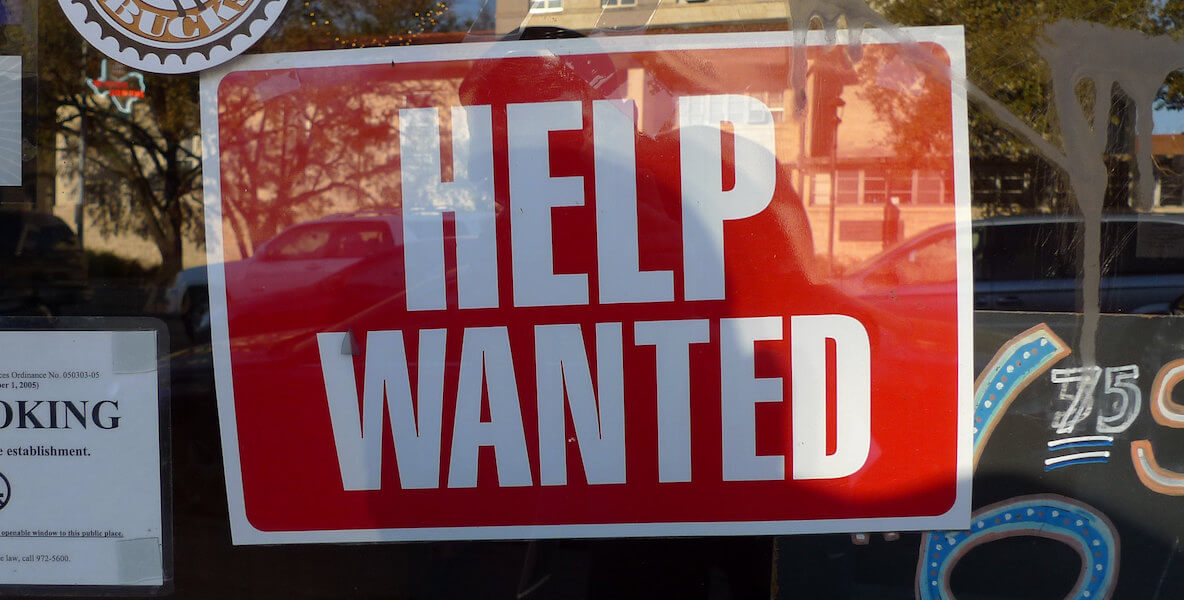If someone told you that you’d just hit the lottery for $2.7 billion, you’d no doubt have some serious thinking to do. After all the partying and high-fiving, at some point you’d be well-advised to, I don’t know, do a little research, talk to some experts, and make a plan for the rest of your life. You’d want to seize the opportunity represented by your windfall, rather than just squander it, as so many lottery winners do.
Well, with an expected $2.7 billion windfall in federal coronavirus relief passed by Congress last month—$1.4 billion for the city, $1.3 billion for the school district—shouldn’t we be seeing a plan that seizes the moment? Instead, it seems like we’ve entered a type of time warp.
The mayor’s budget proposal is basically 2019 redux, as though the last year never happened; it’s a $5.2 billion blueprint for spending without regard to outcome when it comes to our most intractable challenges. Ask what return taxpayers are likely to see on this investment—will the streets be safer? Jobs more plentiful? City services more robust?—and be prepared to hear political bromides but precious little in the way of goals, timetables and accountability.
What debate there has been feels straight outta the 1980s. It’s supply-siders versus redistributionists, as though our elected officials today were imbued by the tax-cutting, trickle-down spirit of Jack Kemp on the one hand, or the high-spending, redistributionist ways of Teddy Kennedy on the other.
MORE ON GROWING JOBS IN PHILLY
The simplicity of this argument played out when, just prior to Mayor Kenney’s budget proposal, Councilperson Allan Domb released his “Philadelphia Economic Recovery Tax Proposal,” which lays out the problem facing the city in stark detail. Compared to peer cities, we have the fewest small and midsize businesses; the lowest per capita number of Black-owned businesses; the lowest rate of average employment per 1,000 residents; and anemic 1.2 percent job growth. Moreover, 60 percent of the jobs we have created pay less than $35,000 per year—far less than in, say, Boston or New York. Not coincidentally, Domb argues, we have the nation’s second-highest corporate tax rate, disincentivizing employers from relocating and growing here.
Domb’s panacea is to cut taxes—the wage and net profits tax, as well as the net income portion of the BIRT tax—and thereby stimulate growth, and Kenney’s budget proposal makes a very modest nod toward tax-cutting, reducing the wage tax by roughly $15 for a middle class earner next year.
Domb’s rationale is absolutely right on the policy, but, by limiting his prescription solely to tax-cutting, it might be tone deaf on the politics. As the recent electoral upset in Pittsburgh of growth-oriented Mayor Bill Peduto shows, we’re in the midst of a leftward swing in reaction to four years of Trumpism and decades of urban disinvestment.
“All of our big problems can only be solved in a sustainable way by creating family-sustaining jobs,” Sweeney says. “If we come out of the pandemic and don’t make that our constant goal, we are silly people.”
Here in the People’s Republic of Philadelphia, socialists are ascendant, and it’s become trendy to want jobs—but not employers. Any call for business tax cuts that are not explicitly linked to progressive ends will fall on deaf ears, especially from Domb, who the Pravda-like Inquirer was recently quick to remind us in a news story is “a condominium magnate who often supports business-friendly policies.” (This despite the fact that Domb’s wage tax rebate of $800 to some 60,000 impoverished workers may have been the city’s most effective anti-poverty legislation in decades.)
Redistributionists like Council progressives Helen Gym and Kendra Brooks were not about to stand for tax cuts for businesses. Relief money from the American Rescue Plan, Gym said, “was not meant to subsidize taxes, especially for corporations.” Brooks has maintained that there is plenty of wealth in Philadelphia and that the 1 percent here ought to foot the bill for fully funded schools, affordable housing for all and jobs with dignity. Sounds good, save for its freedom from fact. We’ve played the redistribution game and have effectively run out of that which to redistribute.
The proof is plain to see in the very “plan” offered by the new wave of Philly socialists. On taxtherichphl.com, a consortium of progressive and socialist groups posit a roadmap to “fund robust city services” by holding “billionaires, corporations and large non-profit institutions accountable to pay their fair share.” They list all the billionaires we ought to tax; the only problem is that precisely 90 percent of them—Jeff Lurie, Michael Rubin, Victoria Mars, and David Paul—do not actually live in Philadelphia. Either Philly’s socialists believe in a very convenient type of regionalism or in taxation without representation.
My eyes tend to roll when the familiar tropes of the supply-side versus redistribution argument is trotted out. But recently, I tuned into a Center City District Zoom chat and, lo and behold, heard someone smartly linking tax cutting to what used to be a progressive end: actually putting working class people to work.
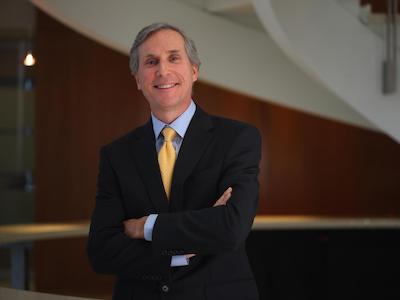
“We’re at a pivotal moment to think about what this city will be like for the next 20 years,” said developer Jerry Sweeney, CEO of Brandywine Realty. (Full disclosure: Brandywine has been a supporter of the Citizen’s Ideas We Should Steal Festival). “All of our housing affordability issues, poverty issues, and gun violence issues are readily solved by a systematic economic growth and job creation program. We’ve got to marry economic growth and tax policy.”
Eureka! As Center City District President and CEO Paul Levy often does, Sweeney was articulating a practical case for the progressive potential of job creation. Growing the pie, rather than cutting it up into ever tinier slices. “I am astounded by the short-term thinking we’re seeing in this city,” Sweeney told me when I caught up with him afterwards. “I talk to a lot of political leaders, and there is much discussion and emphasis on social and economic equity concerns, as there should be. We should always be mindful of them as ultimate goals. But for those goals to be truly transformational, we need a level of economic durability that only economic growth can give us.”
To paraphrase: You really want to move the needle on equity and economic empowerment? It’s all about jobs, jobs, jobs. In the ‘90s, when then-Pres. Bill Clinton’s smart investments in R & D helped create some 20 million jobs while his government shrunk the federal workforce to its smallest size since John F. Kennedy was president, growing the economy seemed like a progressive act. Fast-forward to our state senate primary last fall, in which the list of our highest-priority campaign issues on the website of socialist challenger and ultimate victor Nikil Saval didn’t even mention job creation or economic growth.
“All of our big problems can only be solved in a sustainable way by creating family-sustaining jobs,” Sweeney says. “If we come out of the pandemic and don’t make that our constant goal, we are silly people.”
To Sweeney, it’s a question of messaging and commitment. “We need to set an objective to make Philadelphia one of the top jobs cities in America, and every decision we make has to be made through that lens,” he says. “We need a strategy, tactics and a timeline. And it has to be a clarion call, not an uncertain trumpet.”
In a city that is 45 percent African-American, it is a travesty that only 2.5 percent of our businesses with payroll are owned by Blacks. There is no lack of entrepreneurship in Philadelphia’s neighborhoods; just a lack of capital and connections.
Sweeney tends to agree with Domb on taxes—as does not one, but two, blue-ribbon tax reform commissions. As it is, as Levy has made clear time and again, we disproportionately, and regressively, tax what can up and move—that is, jobs, rather than buildings. A more stable revenue base will generate growth.
But Sweeney goes further. In our conversation, he made the case that, if properly managed, Philadelphia has a chance to become the biotech ecosystem of the world, the fallout from which could fuel growth that reaches into every far-flung neighborhood. But ecosystems don’t just happen; they’re the product of visionary leadership and intentional policy-making. After all, way back when, Silicon Valley was actually birthed by something called Joint Venture Silicon Valley, a type of task force that ushered in uniform permitting and licensing requirements throughout the burgeoning region.
When Penn recently announced it was moving its gene therapy unit to King of Prussia, it had to make you wonder: Where were the visionary political leaders fighting to keep the University City Eds and Meds cluster all together?
Sweeney’s is a holistic view of economic development, a panoramic view from the elite to the street. He is a Jane Jacobs-like evangelist for the transformative effect vibrancy can have on city streets, as he’s demonstrated in Brandywine projects like Cira Green and Schuylkill Yards. In our conversation, he ticked off a list of commercial corridors that are starved for investment.
“There are a tremendous amount of green shoots in our neighborhoods,” he says. “52nd Street? Frankford Avenue? Lehigh and Girard? I was with a district councilperson the other day and said, There’s so much opportunity in these places, why don’t we think boldly? Why don’t we allocate several hundred million dollars and reinvigorate these neighborhoods? Why can’t there be vibrancy in Parkside?’”
 In a city that is 45 percent African-American, it is a travesty that only 2.5 percent of our businesses with payroll are owned by Blacks. There is no lack of entrepreneurship in Philadelphia’s neighborhoods; just a lack of capital and connections. What if the city matched the fund Enterprise Center CEO Della Clark is raising, and hectored the Chamber of Commerce into putting its money where its mouth is by doing the same?
In a city that is 45 percent African-American, it is a travesty that only 2.5 percent of our businesses with payroll are owned by Blacks. There is no lack of entrepreneurship in Philadelphia’s neighborhoods; just a lack of capital and connections. What if the city matched the fund Enterprise Center CEO Della Clark is raising, and hectored the Chamber of Commerce into putting its money where its mouth is by doing the same?
That’s what, in effect, eight New Jersey mayors have done, inspired by Newark Mayor Ras Baraka. They’ve come together and set their sights on narrowing the wealth gap by creating a $100 million philanthropic fund to support Black and Latinx business owners and real estate developers.
Elsewhere, Detroit Future City, a think tank and policy advocate, has released Growing Detroit’s African-American Middle Class: The Opportunity for a Prosperous Detroit, which advances a “comprehensive investment model” with an emphasis on strategic investments in housing, retail and parks that has, in cities like Atlanta and Indianapolis, turned on-the-fringe Black neighborhoods into neighborhoods of choice for middle-class families.
What strikes me about the Detroit plan is the thoughtful intentionality of it. Last week, in an Inquirer op-ed, Controller Rebecca Rhynhart called for the same type of detailed planning here, lest we waste our $2.7 billion opportunity.
Here’s the good news: We don’t have to reinvent anything in order to realize Sweeney’s dream of becoming the poster child for job growth. With its risk-taking, its bold thinking, its smart policymaking, and its sheer swagger, Philadelphia was America’s first startup. Let’s just do that again.
But capital investments in neighborhoods and ecosystem building amongst our Eds and Meds won’t matter if we don’t make it easier for those who would employ our neighbors to do so. An Arizona State University study finds Philadelphia to be one of the most difficult cities in which to do business, and Citizen writer Thomas Koenig demonstrated why this week. In his piece, How Hard Is It To Open A Business In Philly?, Koenig walks us through the myriad and mind-numbing hoops a restaurateur has to jump through just for the privilege of opening a business in our city, and he compares it to the relative ease of doing the same in, say, New York. (Which, according to the same ASU study, also has its challenges when it comes to business-friendliness.)
Reading Koenig’s piece, you can’t help but wonder: Why would anyone go through all this crap to open a business here? Streamlining the onerous process he outlines would not be some giveaway to plutocrats, as in the fever dreams of socialists. It would be an investment in more jobs for us and our neighbors.
That’s why the Manhattan Institute think tank is out with its Small Business Agenda for New York’s Next Mayor. It’s a comprehensive plan that would transform local government from too often being an inhibitor of economic growth into a partner in making it happen. Positing that over-regulation “contributes to a form of regulatory inequality in which the well educated, wealthy founder of a technology startup gets a green light, while an immigrant mother selling salsa from her apartment runs afoul of red tape,” the report recommends:
-
- zero barriers for starting a business, including no fees or registration costs for five years from the establishment of a new firm;
- shortening the time for permits and licenses;
- establishing a “one-stop shop” in City Hall for all business regulation, licensing and permitting, thereby eliminating the need for multiple trips to multiple agencies;
- and naming a cabinet-level Startup Advocate, someone close to the mayor who can advocate for entrepreneurship and serve as a “campaigner, connector, and convener for small businesses…to help the city meet ambitious benchmarks en route to making New York City the best place to be an entrepreneur in America.”
Earlier this week at a Citizen event, many of us were wowed by Oklahoma City Mayor David Holt’s presentation on how his city has led the way for years in making smart, growth-oriented infrastructure investments. A Republican by affiliation but nonpartisan by nature, Holt has done some big, visionary things. But he’s also found ways to fuel growth in subtle ways by reforming his government’s relationship to local free enterprise. Last month, for example, he eliminated 16 of his city’s 19 requirements for occupational licenses. Calling them “governmental overreach,” now no longer will auctioneers, junk collectors and boiler operators have to trek downtown to secure licenses before opening their businesses.
Mayor Holt and Jerry Sweeney both know that communities don’t prosper by accident. They grow by extending opportunity, by building pathways out of poverty, and by helping employers hire more of their citizens. We’ve had five years—a record $1 billion in new spending before our upcoming windfall—of trying to tax our way to prosperity, and our levels of poverty, murder and anemic economic growth are growing even worse. How’s that strategy working out for us?
Here’s the good news: We don’t have to reinvent anything in order to realize Sweeney’s dream of becoming the poster child for job growth. With its risk-taking, its bold thinking, its smart policymaking, and its sheer swagger, Philadelphia was America’s first startup. Let’s just do that again.
The Citizen is one of 20 news organizations producing Broke in Philly, a collaborative reporting project on solutions to poverty and the city’s push towards economic justice. Follow the project on Twitter @BrokeInPhilly.
Header photo: Andreas Klinke Johannsen via Flickr

